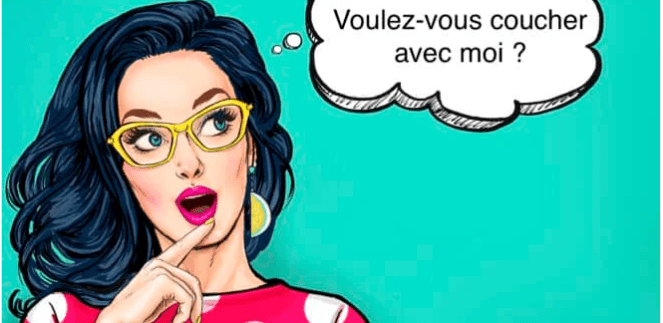Frequently, English incorporates French words, and on occasion, even French expressions. Would you like to learn about these 8 most common French Phrases Used in English ? Let’s explore their meanings in our blogpost and see how to use them.
As we all believe that, French is undoubtedly a beautiful language, and its phrases have become so commonplace in English that we often use them without translation. They have a certain charm and elegance that adds a unique touch to our language.
I’ve compiled a collection of 8 widely recognized French phrases commonly used in English, along with their definitions and applications. You may already be acquainted with most (if not all of them), that’s perfectly okay – learning is a never-ending process. Shall we take a look?!

Au Contraire Mon Frère
“The French phrase ‘Au contraire, mon frère’ translates to ‘On the contrary, my brother’ in English. This phrase is appealing in French because the words ‘contraire’ and ‘frère’ rhyme. In English, it’s a popular expression to use when you want to challenge or oppose something that’s been stated.”
C’est La Vie
This is a widely recognized French expression that literally translates to ‘that’s life.’ Interestingly, it’s more commonly used in English than in France itself, where people tend to say ‘c’est comme ça’ – ‘it’s the way things are’ – more frequently than ‘c’est la vie.’ When used, this phrase usually conveys a somewhat fatalistic tone, giving a sense of resignation to the fact that life is just the way it is, and there’s not much that can be done about it.
Voulez Vous Coucher Avec Moi
For reasons unknown, English speakers find this phrase to be catchy and somewhat flirtatious. However, the literal translation of this popular French phrase is ‘Do you want to have sleepover?’ So, if you thought it was a great French pick-up line to use without knowing its true meaning, you might want to reconsider using it.
C’est Bon
Literally translating to ‘that’s good,’ ‘C’est bon’ is a French phrase used to describe things that are good, such as food. It can also convey the message of ‘that works for me,’ as in the example sentence ‘Dîner ce soir à 8 heures? C’est bon pour moi’ – ‘Joining you for dinner tonight at 8 o’clock works for me.’ Interestingly, in French, ‘C’est bon’ can also mean ‘stop, I’ve had enough,’ which is pronounced with a frown and a stop motion with your hand, as in the sentence ‘Tu veux plus de café? Non c’est bon, merci’ – ‘Would you like more coffee? No, it’s alright, thanks.’ In English, ‘C’est bon’ is primarily used to express satisfaction with a situation. I suppose ‘that’s good’ simply sounds more charming in French.”
Oh Là Là
This expression probably needs no introduction. ‘Oh là là’ is often used to convey various emotions, such as ‘oh dear,’ ‘oh no,’ or even a positive ‘wow.’ For example, when you forget something at home, you might exclaim, ‘Oh là là… I forgot my purse.’ However, I believe that this phrase has been misspelled and misunderstood in the English language, often being turned into ‘ooh la la.’ In this form, it is commonly used as a compliment for someone’s appearance or as a reaction to someone saying something a bit daring.
Je Ne Sais Quoi
The literal translation of ‘je ne sais quoi’ is ‘I don’t know what.’ However, it’s not commonly used in French. If you don’t know what something is, you would say, ‘Je ne sais pas ce que c’est’ – ‘I don’t know what it is.’ In both English and French, it is primarily used to describe a distinctive and usually positive quality about someone or something. For instance, when you can’t quite put your finger on what makes a person special, ‘je ne sais quoi’ is the expression to use.
Touché
The English vocabulary has also adopted the French word “Touché”. While the French word originates from the verb “to touch”, it is not commonly used in French conversation unless you are involved in fencing, as it is a fencing term.
In English, “touché” is used to acknowledge or admit that the other person has made a good point or comeback.
Voilà
It’s likely that you’ve come across this one as well. The French word “voilà” translates to “there you go” or “there it is”. When used in announcing something, it creates a dramatic effect.
In both French and English, “voilà” is employed to emphasize an accomplishment or to express contentment with something. “Voilà! The cake I made!”
So there you have it – eight well-known pop culture French expressions used in English. Do you have any favourites? Do you use anyone of these 8 Most Common French Phrases Used in English?
